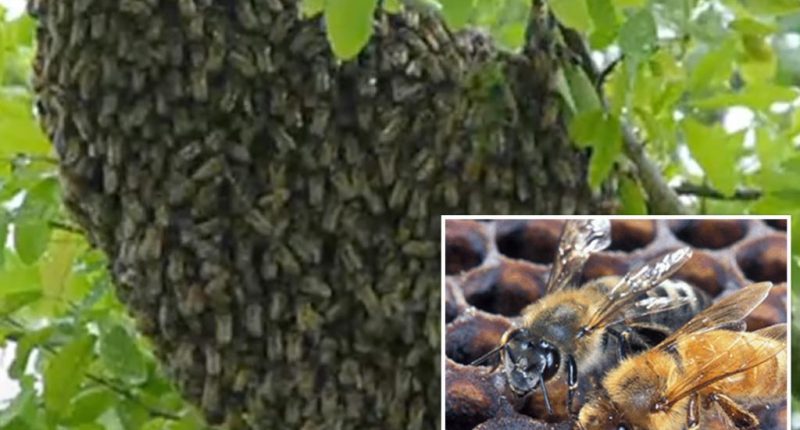Share this @internewscast.com
Authorities in Alabama have reported that they have eliminated a group of feral Africanized honeybees, commonly referred to as “killer bees.” Measures are currently being implemented to safeguard both nearby communities and the native honeybee colonies.
The Alabama Department of Agriculture and Industries (ADIA) announced on Monday that the hive was discovered by local beekeepers in Barbour County, situated close to the Alabama-Georgia border in the Southeast region.
The ADIA said that as a precaution, targeted monitoring efforts are now underway to assess and contain the presence of Africanized honeybees.
Those precautions include deploying traps within a 5-mile radius of where the killer bees were found to attempt any additional activity.
Those efforts, the ADIA said, are part of the ongoing commitment to safeguard pollinators and to support local beekeepers.
“While there is no immediate cause for public alarm, we are handling this situation with utmost seriousness,” stated Rick Pate, the Commissioner of Agriculture and Industries, in a news statement.
“Our team is actively collaborating with local beekeepers and entomology experts to ensure swift detection and appropriate response.”

Pate went on to say that protecting the health of local communities and Alabama’s honeybee population remains a top priority.
Local beekeepers are also being contacted and being provided with guidance on how to recognize and manage the Africanized honeybees.
According to the ADIA, Africanized honeybees are a hybrid of African and European honeybees.
However, while they share many physical characteristics, the Africanized honeybees exhibit a more defensive behavior, especially when they are protecting their colonies.

In fact, officials said the killer bees may swarm more frequently and nest in a wider variety of locations, including inside utility boxes, debris piles and underground.
The ADIA said that honeybees, whether Africanized or European, do not pose a threat unless they are provoked.
However, if they do go on the defense, Africanized honeybees may pursue their threat farther than European honeybees, up to a mile in some cases.
Officials are urging residents in the area to stay safe and not to disturb or try to remove any bee colonies or swarms, and to report any unusually aggressive bee behavior to the ADIA immediately.
Beekeepers are also being asked to remain vigilant and to report any changes to their colonies or if they suspect Africanized honeybees are in the area.

















